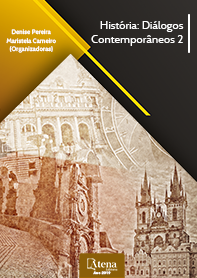
Queermuseu: inclusão e diversidade sob o olhar contemporâneo
O objetivo dessa reflexão é analisar
crítica e subjetivamente a polêmica gerada na
ocasião da exposição Queermuseu, promovida
pelo banco Santander em outubro de 2017. Após
descrever analiticamente a teoria queer passase
a entender adequadamente a polêmica
gerada em torno no contexto da exposição. A
relevância deste estudo é perceber o que nos
é velado no contexto da mídia, sendo que, para
isso, é necessário um distanciamento do que
nos é posto como certo ou errado, para que
essa compreensão se efetive. Para que se
formulasse a crítica foi realizada uma análise às
manifestações contrárias à exposição, a partir
do que nos revela o autor Giorgio Agamben
(2009) acerca dos dispositivos de coerção e o
sujeito contemporâneo. Com base nessa análise
foi possível perceber nas manifestações uma
ação velada e coercitiva, as quais defendem
interesses de terceiros.
Queermuseu: inclusão e diversidade sob o olhar contemporâneo
-
DOI: 10.22533/at.ed.60019230819
-
Palavras-chave: Queermuseu; teoria queer; educação de gênero; subjetividade.
-
Keywords: Queermuseum; queer theory ; gender education and; subjective.
-
Abstract:
The goal of this study is
to critically and subjectively analyze the
controversy emerged with the exhibition at
the Queermuseum, promoted by Santander
bank in October of 2017. After analytically
describing the queer theory it can be understood
the controversy surrounding the context of the
exhibition. The relevancy of this study is to
realize what it is revealed to us by the media,
being that, for that, it is necessary a discerning
look on what is said to be right or wrong, so that
we can comprehensively understand. The critic
here is made after analyzing the manifestations
against the exhibition, with the aid of the author's
Giorgio Agamben (2009) theory on coercion
and the contemporary being. Based on this
analysis it was possible to understand that the
manifestations portrayed a sealed and coercive
action, which are rooted on the interests of third
parties.
-
Número de páginas: 15
- Suely Lima de Assis Pinto
- Manoel Messias Rodrigues Lopes


